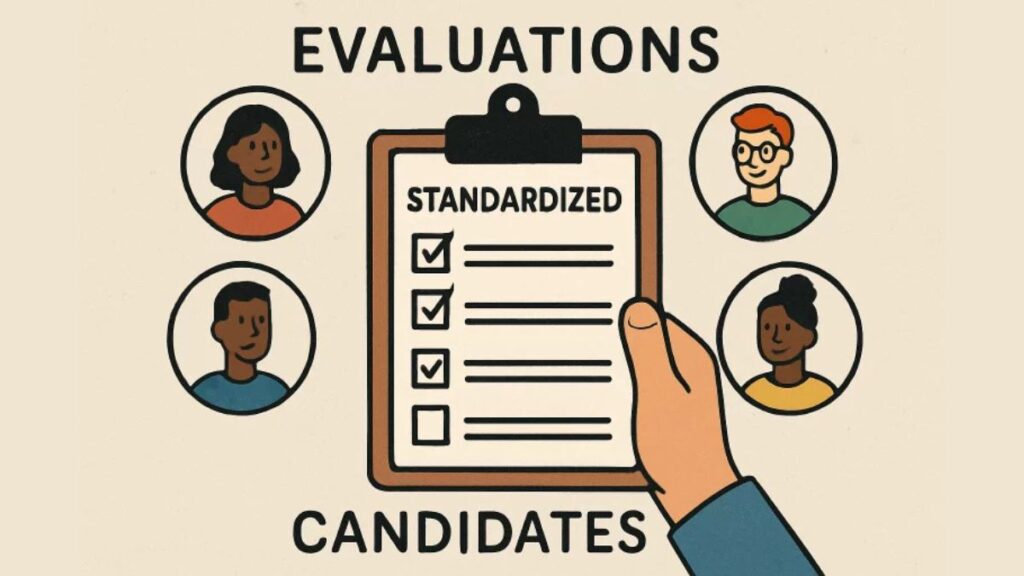Building a diverse, equitable, and high-performing workplace requires intentional strategies that foster fair, unbiased, and standardized hiring practices. One of the most effective and widely endorsed tools in achieving this mission is the use of interview scorecards. By introducing systematic consistency and rigorous objectivity to candidate evaluations, scorecards act as a bulwark against personal prejudices and subjective filters. Early adoption of, or upgrading current recruitment frameworks to include, an interview scorecard template sets the stage for more transparent, reliable, and replicable hiring decisions. Organizations utilizing these structured tools empower their hiring teams to compare applicants against established, job-relevant standards, eliminating disparate treatment and accidental oversight. Through scorecards, not only is the fairness of the hiring process increased, but the process itself becomes more legally defensible and grounded in data, positioning organizations to make better, more justifiable hiring choices.
The growing recognition of interview scorecards as a best practice demonstrates a significant shift in the strategic approach of companies dedicated to diversity, equity, inclusion, and belonging (DEIB). By transforming the hiring process into one that is systematic and merit-based, organizations lay a foundation for broader workplace equity and signal a roadmap for continuous improvement in recruitment standards. As companies increasingly embrace these tools, hiring becomes more equitable, leading to stronger teams and a culture that attracts—and retains—a wide variety of high-quality professionals.
What Are Interview Scorecards?
Interview scorecards are standardized assessment devices designed to make the evaluation of job candidates both structured and objective. Rather than leaving hiring outcomes to the vagaries of instinct or inconsistent interviewer recall, scorecards break down the core competencies essential for success in a role—encompassing technical qualifications, alignment with company culture, communication acumen, adaptability, and critical-thinking prowess—into discrete, measurable elements. Each candidate is evaluated across these criteria, typically using a uniform numerical rating system. This structured process ensures that all applicants are assessed against the same standards, reducing the likelihood of inconsistency or implicit bias influencing the final decision.
Such templates streamline the process for hiring managers, ensuring they are equipped with comprehensive instructions and practical tools for fair candidate analysis and consistent interviewer feedback, ultimately transforming the hiring experience for both interviewers and applicants.
Benefits of Using Interview Scorecards
1. Enhanced Objectivity and Consistency
Unstructured interviews often leave too much room for personal opinions or chance encounters to influence hiring outcomes. With interview scorecards, the evaluation process becomes highly standardized; interviewers are provided a roadmap that guides them to focus exclusively on the qualities necessary for job success. This structure is critical because it means each candidate—regardless of what school they attended, who interviewed them, or where they came from—is assessed against the same measurable benchmarks. The result is not only more credible hiring decisions but also the elimination of “gut-feeling” hires that are difficult to justify or replicate. Organizations using scorecards demonstrate a clear commitment to transparency and fairness, setting professional standards that are both auditable and broadly respected.
2. Reduction of Unconscious Bias
Even with the best intentions, interviewers can be swayed by unconscious bias, making judgments based on shared backgrounds, perceived cultural “fit,” or superficial traits rather than true competence. An interview scorecard’s clear evaluation criteria allow you to assess candidates based on predefined competencies. This minimizes personal biases and ensures fair evaluation, which is the foundation for strong Diversity, Equity, Inclusion, and Belonging (DEIB) at work. As highlighted in Harvard Business Review, structured scorecards help hiring teams stay focused on the attributes that truly matter by grounding decisions in job-specific performance indicators. Scorecards disrupt habitual, biased thinking by requiring assessments against specific, job-relevant benchmarks. This not only improves fairness but ensures that top talent isn’t accidentally overlooked due to extraneous considerations. Over time, this rigorous focus on qualifications and potential has a compounding effect, broadening representation and supporting DEIB in a meaningful, measurable way.
3. Improved Decision-Making
Implementing data-driven hiring practices has been proven to enhance both the quality and longevity of hires. Scorecards facilitate this by rendering candidate feedback into quantifiable, comparable metrics. When hiring teams aggregate these results, they gain a clear, impartial overview of the applicant pool. Interview scorecards provide a structured way to collect and analyze data about candidates. This data can be used to compare candidates objectively and select the most suitable one for the position. Debate and discussion among hiring panel members shifts away from vague impressions and toward substantive criteria and documented performance. Ultimately, this leads to higher quality hires—individuals who genuinely meet the needs of the organization—which in turn supports stronger retention, higher morale, and organizational performance over time.
Conclusion
Interview scorecards have emerged as one of the most valuable and effective tools for organizations aiming to bring about fair, equitable, and data-driven hiring decisions. By adhering to a standard set of job-relevant evaluation factors, organizations significantly reduce the role bias and subjectivity play in recruitment decisions. The path to successful implementation involves thoughtful upfront investment—careful criteria development, thorough interviewer training, and regular process evaluation—but the benefits are enduring. The result is a demonstrably fairer and more accurate hiring process, a more diverse and capable workforce, and a company culture that champions equality and high performance. Adopting a comprehensive tool such as an interview scorecard template is not only wise but critical for organizations intent on leading in today’s competitive and diverse talent landscape.






